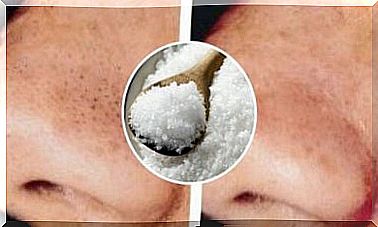The “subtle” Abuse That You Should Not Allow In Your Life
When it comes to talking about abuse, we immediately think of that physical or mental violence that an abuser exercises on his victim. However, there is another type of “subtle” abuse that, sometimes, we are not so aware and that, little by little, ends up destroying us from the inside.
They are covert attacks to which we do not usually react because the aggression is not so direct, or it may not even really seek to do harm. However, by being constant, it destroys our self-esteem and the confidence we have in ourselves. And be careful, because we are not just talking about the subtle abuse that our partners can inflict on us; sometimes even our own family members can.
We teach you to recognize it and defend yourself.
How is the so-called “subtle abuse” exercised?
To understand the dimension of subtle abuse, we will give you some examples that will be easily recognizable to you. Consider a girl who, from a very young age, has been led to believe that she is clumsy. Every time something fell from his hands, his parents caught his attention; when he accidentally broke something, it was justified by his “innate clumsiness.”
As she gets older, they apply her supposed clumsiness to those exams that she suspends from time to time, to her inability to have friends … Her parents love her, there is no doubt, and they do not physically abuse her, of course. However, throughout his life he has been led to believe that he is an “incapable and clumsy” person. A “subtle” abuse that has caused her great insecurity and low self-esteem.
Let’s take another example. We have a partner who tends to use irony a lot in their day-to-day lives. There are frequent in him those burlesque comments in which he tries to make others laugh, without realizing that he is hurting us. He never seems to take things seriously and is ironic about anything: by what you do, by how you dress, by how you express yourself… These are small things that he may not do with malicious intent. However, they cause you pain and, therefore, is a type of covert abuse.
You should know that these types of behaviors are very frequent in our reality and that it is very difficult to react to them. They are small things that, by becoming persistent, end up hurting us, to the point of being completely defenseless. We have to learn to recognize them.
How do I defend myself against “subtle” abuse?

- Be aware that words can be as damaging as a slap in the face. Internal injuries are as painful as a blow.
- It does not matter how harmless the comment is, or how innocent of that irony they have dedicated to you. Do not allow it, put your thoughts out loud expressing clearly that those words hurt you and that they should not be repeated.
- Set limits in your life, barriers that others should not cross. If ironies about yourself bother you, don’t allow them; If they say something about you that is not true, defend yourself. If there are people who are always dedicated to throwing you small comments of these characteristics, perhaps you should consider staying away from them. Toxic people only cause suffering and, to live with insecurity or unhappiness, it is not worth having them with us.
- The main problem with “subtle abuse” is that other people see no harm in your words or actions. They don’t recognize it. What is a joke for them is a clear offense for us. If we do not react, if we let it pass one day and another, a day will come when the level of abuse will be much higher.
- Subtle abuse can be exercised by our fathers, mothers, siblings, partners or even coworkers. People who say they love and respect us, but you must not be wrong. It is vital that you always defend your own integrity and your self-esteem, and that you differentiate very well what is respect from what is offense.
- There are people who think that daily trust gives them licenses to joke with us, to ridicule and even disrespect us. Never allow it. Everything that bothers you, put it in evidence. Prevent them from hurting you, and if your reaction is misjudged, don’t worry either.
- Who does not understand that you have been hurt lacks empathy, and does not have the adequate emotional intelligence to establish healthy relationships.








